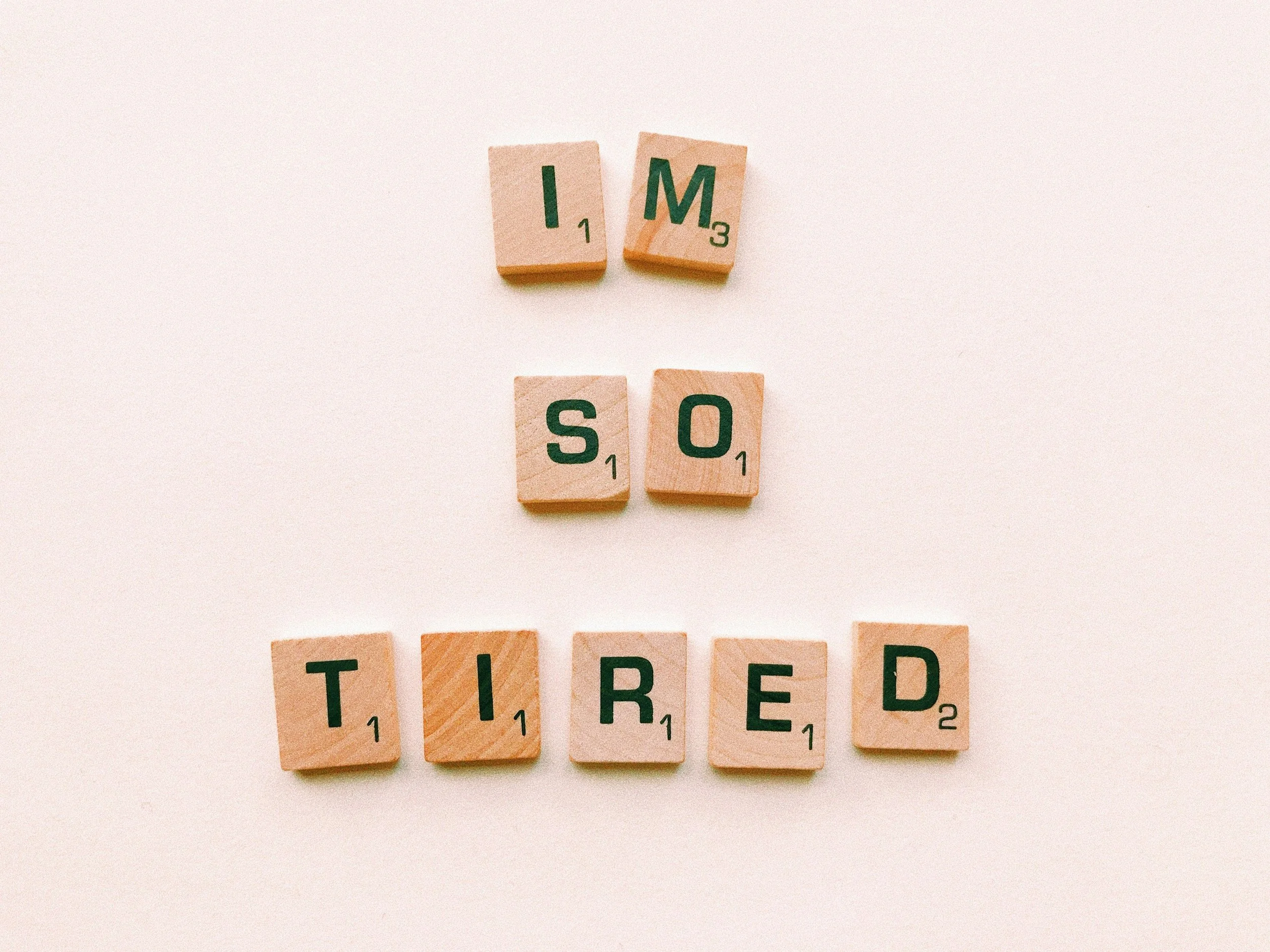Wired But Tired? Your Body Might Be Running on Cortisol
You’re checking the boxes, getting decent sleep, eating in a way that feels balanced, even squeezing in a few workouts when time allows. But still, something feels off. You’re dragging through the day with a quiet sense of urgency humming underneath it all. You feel wired, but not in a way that translates to clarity or strength.
Often, this isn’t about effort. It’s about what your body is pulling from to get through the day.
When your nervous system is under consistent pressure, your body begins relying more on cortisol, the primary stress hormone, as a stand-in for energy. It works, until it doesn’t. And what starts as a functional adaptation slowly begins to wear you down.
If any of these five signs feel familiar, take them as information. They’re subtle but important signals that your system may be running on stress chemistry instead of true fuel.
1. You’re Tired When You Wake Up, and Still Tired by Midday
You’re getting your hours in, but mornings feel heavy. It takes more than one alarm to get up, and your brain feels slow to come online. By early afternoon, you’re either fantasizing about a nap or relying on caffeine to push through.
This isn’t simple fatigue. It’s a mismatch in your cortisol rhythm. When cortisol peaks too early, stays elevated too late, or flatlines entirely, the body struggles to regulate its natural wake-sleep signals. So even after what looks like “enough” sleep, you wake up feeling behind.
2. You Sleep, but It Doesn’t Feel Like Rest
You’re going to bed on time. You may even fall asleep quickly. But somewhere around 2 or 3 a.m., you find yourself awake with your mind spinning.
This mid-sleep wakefulness often means cortisol hasn’t tapered off enough to allow deep rest. When stress hormones stay active into the evening, melatonin can’t do its job fully. The result is sleep that looks fine on paper but doesn’t leave you feeling refreshed.
3. You React Quickly, Even to Small Things
Maybe the car in front of you moves too slowly. Or your partner asks a simple question, and you feel irritation rise before you can stop it. Focus feels harder to access. Emotion feels harder to regulate.
This isn’t a flaw in your personality. It’s your chemistry at play. When cortisol stays elevated for too long, it changes how your brain handles dopamine and serotonin, two neurotransmitters involved in patience, focus, and emotional balance. The result is a thinner threshold for stress, even when nothing major is happening.
4. Your Body Feels Inflamed, Especially Around the Midsection
You’re eating with care. You’re moving your body in ways that used to help. And still, your clothes feel tighter than usual, especially around the waist. Your digestion may feel sluggish. Bloating might show up more often than before.
Chronic cortisol elevation tells the body to hold onto energy, often in the form of abdominal fat. It can also interfere with insulin sensitivity, which leads to blood sugar spikes and dips even when you’re eating fairly balanced meals. This isn’t just a matter of weight; it’s your body choosing efficiency and survival over ease when it senses ongoing pressure.
5. You Catch Everything That’s Going Around
You used to bounce back from colds quickly. Now it feels like every minor illness lingers. Cuts take longer to heal. Your skin may feel more reactive. Your digestion might be less reliable than it used to be.
When the immune system is caught in a cortisol loop, stress hormones suppress its normal defenses. Your body loses some of its resilience when it comes to fighting off small infections or recovering from everyday stressors.
When you notice these patterns, it doesn’t necessarily mean burnout. It’s simply your body doing its best to adapt to the signals it’s receiving.
Gentle Shifts That Support Recovery
Rather than overhauling everything at once, start with what feels nourishing and doable:
Begin the day with protein-rich food, not just caffeine. This helps signal safety to your system.
Protect evening hours from stimulation. Dim the lights, put away the scrolling, and create softness around your nervous system.
Take brief movement breaks throughout the day, especially when tension gathers in your neck, shoulders, or chest.
Notice when you feel “revved up” without clarity and ask yourself, What would support me right now? Not what would fix it — what would help?
Recovery from stress chemistry rarely happens through more force or structure. It often begins with permission — to rest, to feel, to slow down. When your body starts to sense that it’s safe to pause, it gradually shifts from survival mode to restoration.
Personal Note:
I have experienced every single one of these signs at some point. For a long time, I thought I just needed to try harder, to be more disciplined. But the truth is, my body was running on empty. Once I started paying attention to these subtle cues and made small changes, things shifted. Morning protein, gentle movement, slower evenings. It’s not about perfection; it’s about giving your body what it needs to feel safe again.
Which of these signs feels familiar to you right now? What small change could you try this week to support recovery instead of pushing through?

